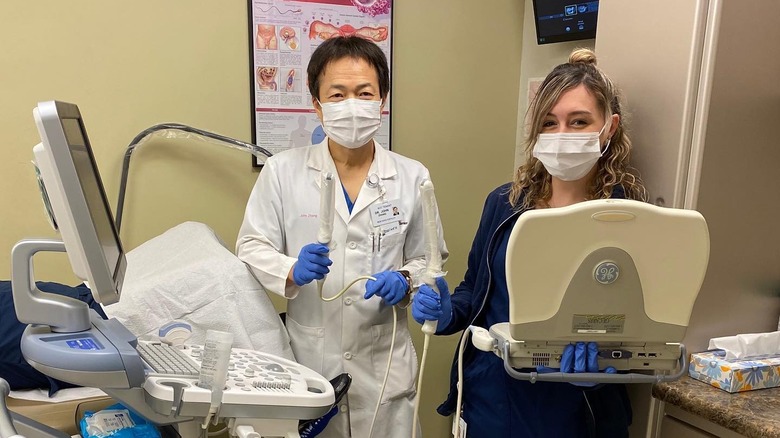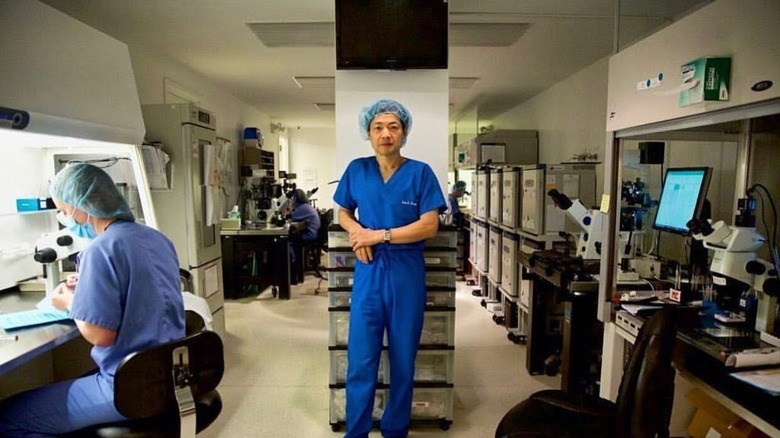Fertility Specialist Dr. John Zhang Explains How The Overturn Of Roe V. Wade Will Impact IVF - Exclusive
The Supreme Court's June 24 decision in the Dobbs v. Jackson Women's Health Organization effectively overturns the landmark Roe v. Wade case, which made abortion legal in every U.S. state. The Dobbs decision put the issue of abortion back in the purview of the states, meaning that each state can now decide whether abortion is legal within its state lines. According to Politico, nine states have already banned abortion entirely. Florida has banned abortions after 15 weeks, and several other states are in the process of either banning abortion or deciding if it will be banned.
The full implications of the decision, especially on reproductive care other than abortion, are still being clarified. In states where abortion is banned, in vitro fertilization (IVF) may also become illegal because non-viable embryos created for the process are destroyed. If states decide that life begins at conception, as many anti-abortion supporters have argued, then destroying the non-viable embryos created by IVF would be considered terminating a life.
To explore how IVF could change in a post-Roe world, Health Digest connected with IVF expert Dr. John Zhang, the founder and medical director of New Hope Fertility Center. In an exclusive interview, he revealed how the decision could impact IVF and prospective parents who rely on IVF to conceive.
Could IVF become illegal?
Dr. John Zhang acknowledged that the Dobbs decision could have a significant impact on in vitro fertilization in states that have banned abortion.
"The basic spirit of the overturn is that it considered embryos and fetuses to have equal birth rights, so discarding embryos may mean that you are terminating a life," he explained. "Under these circumstances, you have an immediate impact on the practice of in vitro fertilization."
He clarified that even if destroying non-viable embryos is banned along with abortion, IVF will remain legal. However, changes will need to be made to the IVF process to ensure that embryos aren't being destroyed: IVF will need to shift the focus of the process from egg quantity to egg quality.
Typically, one round of IVF focuses on producing as many eggs as possible for fertilization to increase the chances of creating a viable embryo. All of the extra, non-viable embryos are destroyed. In a post-Roe world, the focus would need to shift to producing just a few high-quality eggs so they have a high likelihood of producing viable embryos. All those viable embryos can then be implanted in the hopes that one will create a viable pregnancy.
How will the Dobbs decision impact patients undergoing IVF?
These changes to the IVF process could have a huge impact on patients who rely on IVF to conceive. Prospective parents who are older and have less time to get pregnant will have to undergo more "aggressive" protocols to produce high-quality eggs, Dr. John Zhang explained. Their chances of success may be pretty low because egg quality declines with age, according to Verywell Family. Success rates of IVF for people over 40 are only 13.8% per egg retrieval cycle and decrease each following year. Retrieving fewer eggs each cycle may lower success rates even further.
Younger patients' IVF treatments will also have to be carefully tailored to ensure they don't produce too many eggs for each round of egg retrieval. Dr. Zhang stressed that doctors will have to work very closely with their patients, regardless of age, to understand their expectations of IVF and adjust based on the goal of harvesting only high-quality eggs. Doctors will also have to ensure that the treatments don't create non-viable embryos, which is exceedingly difficult given how much of the IVF process relies on chance.
Though Dr. Zhang is confident that fertility experts like himself will still be able to provide successful IVF treatments in a post-Roe world, he's realistic about the challenges doctors and patients will face.
For more information, please visit the New Hope Fertility website at www.newhopefertility.com.



